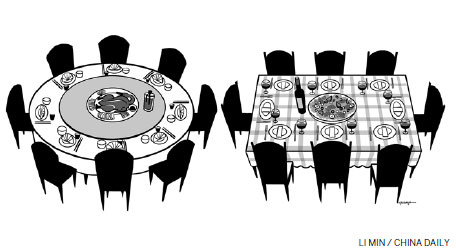
There appears to be a race between the United States and China to dominate the rules-setting game for trade by being the first to be able to announce plans of realizing a Free Trade Agreement for the Asia-Pacific. If the Trans-Pacific Partnership can be concluded, in one form or the other, so an announcement can be made at the APEC meeting in Beijing at the end of the week it would steal the thunder from China. But if such an announcement is not forthcoming, China will likely announce a "Beijing Road Map" for an FTA of the Pacific-rim, building on APEC rather than the TPP. Billions of dollars in trade are at stake.
It will be difficult for leaders from the TPP countries to ignore a declaration endorsing a feasibility study for the FTAAP if they cannot offer an alternative. Reports on whether the US has been able to dissuade China from floating the proposal have been mixed. They have succeeded in leaving the door slightly ajar for the TPP to play a future role by blocking reference to a deadline for completion of 2025. Although deadlines can be missed, as the TPP itself demonstrates, setting one implies it is more than just a vision but a plan bounded by a timeframe. The fear is that pursuing the FTAAP could derail the TPP.
There is widespread confusion about why the TPP is taking so long, and what it may look like when finally concluded.
A useful starting point in explaining the delay is to look at the 12 countries involved, which are a highly diverse group by any measure. They are widely dispersed geographically, with members from four of the world's seven continents, and they are just as economically diverse. Australia's per capita income is 40 times that of Vietnam. The US economy is 1,000 times the size of Brunei's. Finding common ground amid such diversity can't be easy.
Of course, the TPP delays pale in comparison to another struggling proposed trade pact - the World Trade Organization's Doha Round. But although there are fewer countries in the TPP compared to the WTO, diversity is not a simple function of the number of countries involved. Where a group includes countries as varied as Vietnam, Peru and the US, there is not only a lack of commonality in negotiating positions; negotiators may not even subscribe to broadly similar principles. APEC has even more diversity since it has an additional nine members. But then it is not trying to conclude any agreement at present.
Moreover, there is the sense of the TPP being an unfair bargain, as the agenda appears skewed firmly in favor of one party. The carrot being dangled by the US is improved access to its huge market. But as half the TPP members already have an FTA in place with the US and the rest are trying to conclude one, the incremental benefit is likely small.